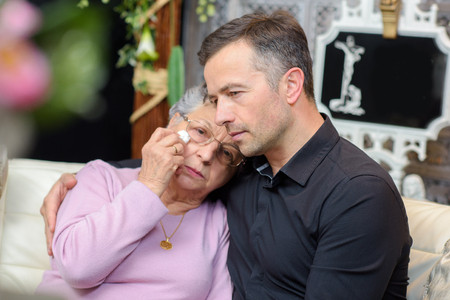Palliative Care: Stages of Grief
The iSavta Team | 13.11.2019

After learning that someone is terminally ill, there are various emotions and stages of gried. It can be very unsettling. You may experience many feelings or you may not feel much at all at first. Whatever you are feeling is absolutely acceptable. Be as open as possible about your feelings; this will help the grieving process for you and your relative or friend.
Dealing With Grief
| Emotion | How It Is Expressed | How To Deal With It |
|
Shock Denial Disbelief |
- Your dying patient may reject the diagnosis, even after many doctors have been consulted. Be prepared to acknowledge that she may never accept the reality. - It is often easier to ignore the implications of death than to face up to the reality of it. Some people may conceal shock and try to cope by behaving as if nothing has happened |
- You should listen patiently and sensitively to your patient. If she does not acknowledge that she is dying, do not press the point; she will deal with it in her own way. - Discuss your feelings, if possible, with your dying patient and close family and friends. If everyone is able to accept the reality, this could reduce the emotional stress that is felt later. |
|
Anger Guilt |
- The dying person is likely to feel angry because she is afraid of death. She may direct her anger at you and others who care for her, which may be difficult to handle. She may also become irritable and depressed. - You and others who are close to your patient may feel angry that she is dying. |
- Accept that anger is a natural step towards your patient accepting her death, and try not to take personally any anger that is directed at you. - As healthcare professionals for advice on how best to deal with angry confrontations, if needed. |
|
Letting Go Acceptance |
- Having worked through denial and anger, your patient may finally accept that she is dying, - She may ask for your help with practical arrangements, such as making a will. - She may feel ready to have visitors and make the most of the time she has left. |
- Offer to help your patient or relative to put her affairs in order. - Encourage visitors to phone first so she has a choice about whether the time is right to see them. Watch for signs of tiredness. You may decide on a "key word" so that your patient can signal when she has had enough. |
Source: Dorling Kindersley Limited











